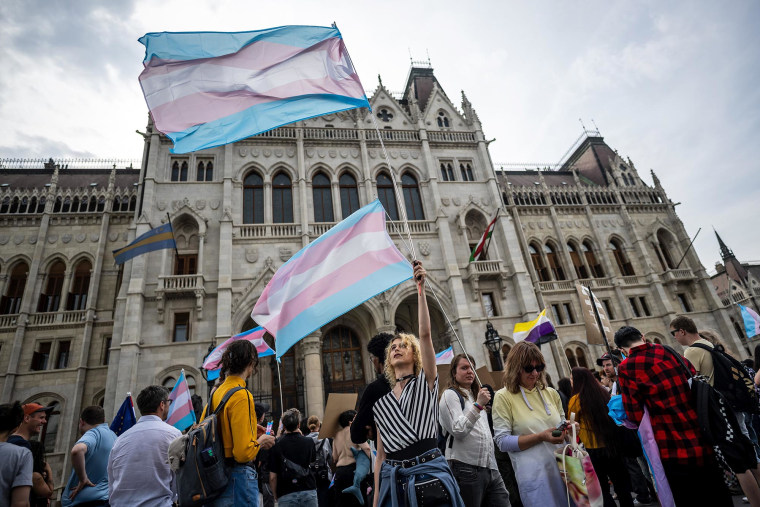A look at recent global actions limiting legal recognitions for transgender people
A ruling Wednesday from the top court in the United Kingdom that says the legal definition of a woman is someone whose birth sex is female is the latest high-profile action globally involving the issue of what legal recognitions transgender people are allowed. The spectrum of protections around the world ranges widely, from none at all in a number of countries to the existence of anti-discrimination protections and legal gender identity changes in some others.
Here’s a look at actions in some countries recently:
United Kingdom
The decision from U.K. Supreme Court revolved around the U.K. Equality Act, which bars discrimination along protected categories including age, race and sex. The court’s ruling said that for the purposes of the act, the definition of a woman is someone born biologically female, which excludes transgender people. The unanimous decision means trans women can be barred from places like women-only changing rooms and homeless shelters and kept from groups like those offering medical or counseling services only to women. But the ruling also said the decision didn’t mean transgender people were without any legal protection, because the Equality Act also recognizes gender reassignment as a protected category.
Supporters of For Women Scotland, the group that brought the suit, celebrated the decision while advocates for transgender rights called it a setback.
Hungary
Rights for transgender people were restricted as part of a wider crackdown on LGBTQ communities in Hungary through an amendment to its constitution passed on April 14. The measure was proposed by the ruling coalition led by populist Prime Minister Viktor Orbán, and easily sailed through Hungary’s parliament.
Under the new amendment, the nation’s constitution says there are two sexes, male and female. A government spokesman called it “a clarification that legal norms are based on biological reality.” It lays a constitutional groundwork for denying transgender people the ability to have their gender identities protected.
Critics of the amendment said it was about humiliating and excluding people, and part of the ruling party’s moves toward authoritarianism. The amendment also banned any public events from LGBTQ communities, which Hungary’s government has strongly campaigned against in recent years.

United States
President Donald Trump has made a ban on transgender participation in sports a central focus of his administration. On Wednesday, he sued the state of Maine for not following an executive order he signed that banned transgender athletes from participating in girls’ and women’s sports.
In a February meeting with state governors, Trump called out Gov. Janet Mills for not complying with his order, and threatened to pull federal funding, to which Mills replied, “We’ll see you in court.”
The administration’s lawsuit calls for Maine to be ordered to tell its schools that it’s prohibited for males to participate in athletic competition designated for females.
Another of Trump’s executive orders insists on a rigid definition of the sexes, rather than gender, for federal government purposes. The orders are facing court challenges. For its part, Maine sued the administration after the Department of Agriculture said it was pausing some money for the state’s educational programs. A federal judge on Friday ordered the administration to unfreeze funds intended for a Maine child nutrition program.
It’s not just on the federal level; the question of legal protections for transgender people is a political issue in many American states as well. In twenty-six states, transgender girls from are banned from girls school sports. Other issues around the country include access to gender-related health care for minors and bathroom access in public spaces like schools and government buildings.

